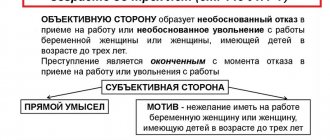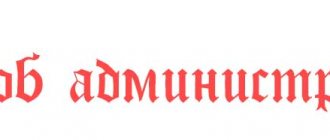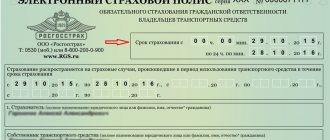New edition of Art. 236 of the Criminal Code of the Russian Federation
1. Violation of sanitary and epidemiological rules, which through negligence resulted in mass disease or poisoning of people or created the threat of such consequences, -
shall be punishable by a fine in the amount of five hundred thousand to seven hundred thousand rubles, or in the amount of the wages or other income of the convicted person for a period of one year to eighteen months, or by deprivation of the right to hold certain positions or engage in certain activities for a period of one to three years, or by restriction freedom for a term of up to two years, or forced labor for a term of up to two years, or imprisonment for the same term.
2. Violation of sanitary and epidemiological rules, resulting in the death of a person through negligence, -
shall be punishable by a fine in the amount of one million to two million rubles, or in the amount of the wages or other income of the convicted person for a period of one to three years, or by restriction of liberty for a term of two to four years, or by forced labor for a term of three to five years. , or imprisonment for the same period.
3. Violation of sanitary and epidemiological rules, resulting in the death of two or more persons through negligence, -
shall be punished by forced labor for a term of four to five years or imprisonment for a term of five to seven years.
Explanations of the Supreme Court of the Russian Federation on coronavirus
Review of judicial practice of the Supreme Court of the Russian Federation dated April 21, 2020 No. 1
Question 22: Which category of individuals is subject to administrative liability under Part 2 of Article 6.3 of the Code of Administrative Offenses of the Russian Federation in connection with the threat of the spread of the new coronavirus infection (COVID-19)?
Answer: Part 2 of Article 6.3 of the Code of Administrative Offenses of the Russian Federation establishes administrative liability for violation of legislation in the field of ensuring the sanitary and epidemiological well-being of the population, expressed in violation of existing sanitary rules and hygienic standards, failure to comply with sanitary, hygienic and anti-epidemic measures committed during an emergency situation or in the event of the threat of the spread of a disease that poses a danger to others, either during the period of implementation of restrictive measures (quarantine) in the relevant territory, or failure to comply within the established period with a legal order (resolution) issued during the specified periods or the requirement of the body (official) carrying out the federal state sanitary and epidemiological supervision, on the implementation of sanitary and anti-epidemic (preventive) measures.
By Decree of the Government of the Russian Federation of January 31, 2020 No. 66, coronavirus infection (2019-nCoV) was included in the List of diseases that pose a danger to others.
Patients with infectious diseases, persons suspected of having such diseases and persons in contact with persons suffering from infectious diseases, as well as persons who are carriers of pathogens of infectious diseases, are subject to laboratory examination and medical observation or treatment, and if they pose a danger to others, mandatory hospitalization or isolation in the manner established by the legislation of the Russian Federation (Part 1 of Article 33 of the Federal Law of March 30, 1999 No. 52-FZ “On the sanitary and epidemiological welfare of the population”).
When a violation of sanitary legislation is detected, as well as in the event of a threat of the emergence and spread of infectious diseases and mass non-infectious diseases (poisonings), officials exercising federal state sanitary and epidemiological supervision have the right to issue, in particular, to citizens orders that are mandatory for them to comply with within a specified time frame. , on eliminating identified violations of sanitary and epidemiological requirements, on carrying out additional sanitary and anti-epidemic (preventive) measures, as well as in the event of a threat of the emergence and spread of infectious diseases that pose a danger to others; chief state sanitary doctors and their deputies are empowered to make reasoned decisions on hospitalization for examination or on isolation of patients with infectious diseases that pose a danger to others, and persons suspected of such diseases, as well as on conducting a mandatory medical examination, hospitalization or isolation of citizens, who were in contact with patients with infectious diseases that pose a danger to others (clause 2 of Article 50, clause 6 of part 1 of Article 51 of the Federal Law of March 30, 1999 No. 52-FZ “On the sanitary and epidemiological welfare of the population”).
Thus, the federal legislator allows medical intervention, as well as the adoption of isolation measures of various kinds in relation to the above-mentioned persons in the manner prescribed by law.
Compliance with sanitary rules, sanitary and anti-epidemic (preventive) measures is mandatory for citizens, individual entrepreneurs and legal entities (Part 3 of Article 39 of the Federal Law of March 30, 1999 No. 52-FZ “On the Sanitary and Epidemiological Welfare of the Population”, paragraphs 1.3, 2.6, 2.7, 10.1, 13.1 Sanitary and Epidemiological Rules SP 3.1/3.2.3146-13 “General Requirements for the Prevention of Infectious and Parasitic Diseases”, approved by Resolution of the Acting Chief State Sanitary Doctor of the Russian Federation dated December 16, 2013 No. 65).
Based on the interpretation of the above norms in their systemic interrelation, persons suspected of having a contagious form of an infectious disease are subject to administrative liability under Part 2 of Article 6.3 of the Code of Administrative Offenses of the Russian Federation in connection with the threat of the spread of a new coronavirus infection (COVID-19), persons who arrived on the territory of the Russian Federation, including from a state that is epidemically unfavorable for coronavirus infection, persons who are or have been in contact with the source of the disease, in contact with persons suspected of having a contagious form of an infectious disease, persons evading treatment dangerous infectious disease, violating the sanitary and anti-epidemic regime, as well as failing to comply within the prescribed period with a legal order (resolution) or requirement of the body (official) exercising federal state sanitary and epidemiological supervision issued during the periods specified in Part 2 of Article 6.3 of the Code of Administrative Offenses of the Russian Federation .
So, for example, under Part 2 of Article 6.3 of the Code of Administrative Offenses of the Russian Federation, the actions of an individual who arrived on the territory of the Russian Federation and violated the requirements for isolation at home are subject to qualification (subclause 2.3 of clause 2 of the resolution of the Chief State Sanitary Doctor of the Russian Federation dated March 18, 2020 No. 7 “On ensuring the isolation regime in order to prevent the spread of COVID-2019”).
At the same time, when deciding on the imposition of an administrative penalty of a specific type and amount on a person against whom proceedings are being conducted for an administrative offense, provided for in Part 2 of Article 6.3 of the Code of Administrative Offenses of the Russian Federation, it is necessary to be guided by the provisions of Chapter 4 of the Code of Administrative Offenses of the Russian Federation and keep in mind what punishment must meet the requirements of proportionality, fairness and proportionality, individualization of administrative responsibility, and also meet the goals of preventing the commission of new offenses both by the offender himself and by other persons.
Question 23: Officials of which bodies have the right to draw up protocols on administrative offenses provided for in Part 2 of Article 6.3 of the Code of Administrative Offenses of the Russian Federation?
Answer: Protocols on administrative offenses provided for in Part 2 of Article 6.3 of the Code of Administrative Offenses of the Russian Federation may be drawn up:
- officials of internal affairs bodies (police) (clause 1 of part 2 of article 28.3 of the Code of Administrative Offenses of the Russian Federation);
- officials of bodies exercising federal state sanitary and epidemiological supervision (clause 19 of part 2 of article 28.3 of the Code of Administrative Offenses of the Russian Federation).
Question 24: What is the statute of limitations for bringing to administrative liability in cases of administrative offenses provided for in Part 2 of Article 6.3 of the Code of Administrative Offenses of the Russian Federation?
Answer: Administrative offenses, liability for which is established by part 2 of article 6.3 of the Code of Administrative Offenses of the Russian Federation, are ongoing.
In accordance with Part 1 of Article 4.5 of the Code of Administrative Offenses of the Russian Federation, the statute of limitations for bringing to administrative responsibility for committing an administrative offense provided for in Part 2 of Article 6.3 of the Code of Administrative Offenses of the Russian Federation is 1 year and is calculated from the moment the administrative offense is discovered.
Question 25: Which subject of administrative jurisdiction considers cases of administrative offenses provided for in Part 2 of Article 6.3 of the Code of Administrative Offenses of the Russian Federation, how are the place of consideration of these cases and the place where the offense was committed determined?
Answer: Cases of administrative offenses provided for in Part 2 of Article 6.3 of the Code of Administrative Offenses of the Russian Federation are considered by judges of district courts (Part 3 of Article 23.1 of the Code of Administrative Offenses of the Russian Federation).
Cases of administrative offenses provided for in Part 2 of Article 6.3 of the Code of Administrative Offenses of the Russian Federation are subject to consideration at the place where such offenses were committed. In this case, the place where administrative offenses of this category are committed is the place where they were detected.
If an administrative investigation is carried out in a case of an administrative offense provided for in Part 2 of Article 6.3 of the Code of Administrative Offenses of the Russian Federation, such a case is considered at the location of the body that conducted the administrative investigation (Part 1 of Article 28.7, Part 2 of Article 29.5 of the Code of Administrative Offenses of the Russian Federation).
This category of cases of administrative offenses can be considered using video conferencing systems (Article 29.14 of the Code of Administrative Offenses of the Russian Federation).
Question 15: How should we differentiate between criminal liability under Part 2 of Article 236 of the Criminal Code of the Russian Federation and administrative liability under Part 3 of Article 6.3 of the Code of the Russian Federation on Administrative Offenses (hereinafter referred to as the Code of Administrative Offenses of the Russian Federation)?
The article was written and posted on April 13, 2021. Added - 04/21/2020
ATTENTION!
Copying the article without providing a direct link is prohibited. Changes to the article are possible only with the permission of the author.
Author: lawyer and tax consultant Alexander Shmelev © 2001 — 2021
Fines for pharmacies
From April 1, administrative fines were introduced for individual entrepreneurs, organizations and their officials involved in the sale of medicines for non-compliance with the maximum permissible prices for medicines and drugs (Federal Law dated 04/01/2020 No. 99-FZ).
According to the new rules, this violation entails the imposition of an administrative fine on officials of organizations in the amount of 250,000 to 500,000 rubles.
Individual entrepreneurs and organizations for illegally inflating prices will pay twice the amount of excess revenue received from the sale of medicines due to illegally inflating state-regulated prices for the entire period during which the offense was committed, but not more than one year.
Useful links on the topic “Article 6.3 of the Code of Administrative Offenses of the Russian Federation, fine for violating the rules of self-isolation”
- Measures to support small and medium-sized businesses in connection with the coronavirus epidemic:
- in Russia (federal benefits)
Mobile application “Stop coronavirus” from the Ministry of Telecom and Mass Communications
- all measures;
- regulations;
- tax holidays;
- application form and obligations to obtain a deferment in the payment of taxes and insurance premiums due to coronavirus;
- credit holidays;
- abolition of penalties for non-payment of housing and communal services and DDU
- in Moscow
- in St. Petersburg
- in the Leningrad region
- in the Moscow region
- in the Nizhny Novgorod region
- How to pay salaries, taxes and submit reports from March 30 to April 30, 2021
- Add. agreement to transfer an employee to remote work
- Is coronavirus a force majeure event?
- Sample complaint about unlawful actions of a police officer







